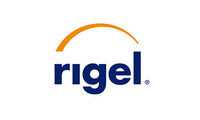Rigel Pharmaceuticals, Inc.

🇺🇸United States
- Country
- 🇺🇸United States
- Ownership
- Public
- Established
- 1996-01-01
- Employees
- 147
- Market Cap
- $232.4M
- Website
- http://www.rigel.com
Clinical Trials
61
Active:54
Completed:7
Trial Phases
3 Phases
Phase 1:45
Phase 3:2
Not Applicable:1
Drug Approvals
2
FDA:2
Clinical Trials
Distribution across different clinical trial phases (48 trials with phase data)• Click on a phase to view related trials
Phase 1
45 (93.8%)Phase 3
2 (4.2%)Not Applicable
1 (2.1%)No trials found
News
TAVALISSE® (Fostamatinib) Approved in Mexico for Chronic ITP Treatment
Knight Therapeutics' Mexican affiliate receives regulatory approval for TAVALISSE® (fostamatinib) from COFEPRIS to treat thrombocytopenia in adult patients with chronic immune thrombocytopenia (ITP).
